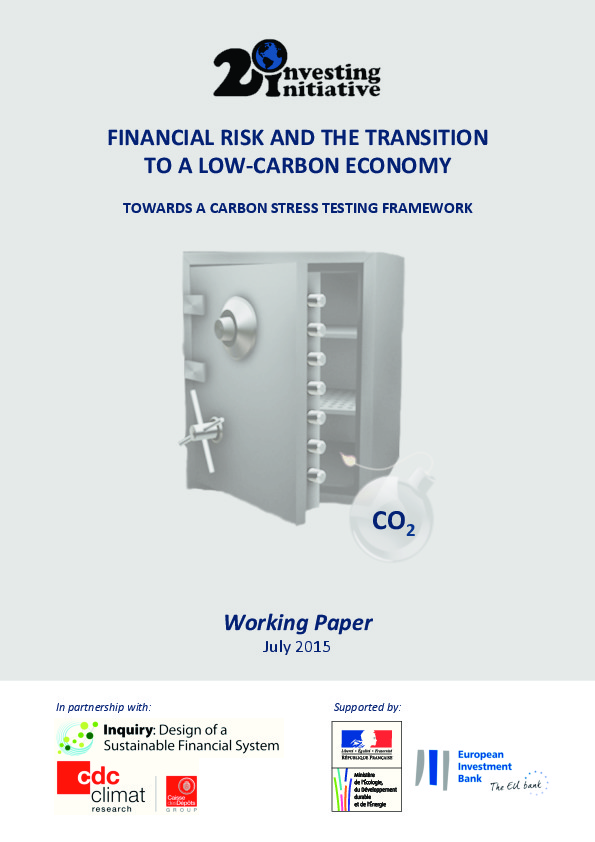Financial risk and the transition to a low-carbon economy – Towards a carbon stress testing framework
By 2° Investing initiative : Hugues Chenet, Jakob Thomä, Didier Janci, With inputs from Romain Hubert (I4CE) Nick Robins, Peter Cruickshank (UNEP Inquiry ) and Stan Dupré (2°Invesing Initative).
On July 27th at Moody’s in New York, 2° Investing Initiative launched the report “Financial risk and the transition to a low-carbon economy” in partnership with UNEP Inquiry and I4CE. The report reviews the main approaches to assessing carbon risk along the investment chain and discusses barriers to its integration in decision making.
The report identifies two categories of climate-related financial risks to financial institutions: risks arising from physical climate change and “carbon risk” which arise from the transition to a low-carbon economy following one of the possible decarbonization pathways. The authors show that to date, risk factors resulting from climate change and the transition to a low-carbon economy are generally not taken into consideration by mainstream risk assessment and management frameworks; there are multiple reasons for this. The report reviews a number of “climate and carbon stress test” initiatives that suggest the materiality of these risks along the investment chain. The materiality of these risks for financial institutions and the financial system remains unclear. Financial regulators and policy makers, notably in France, the United Kingdom, and at the G20 level have nevertheless started responding to the issue.

